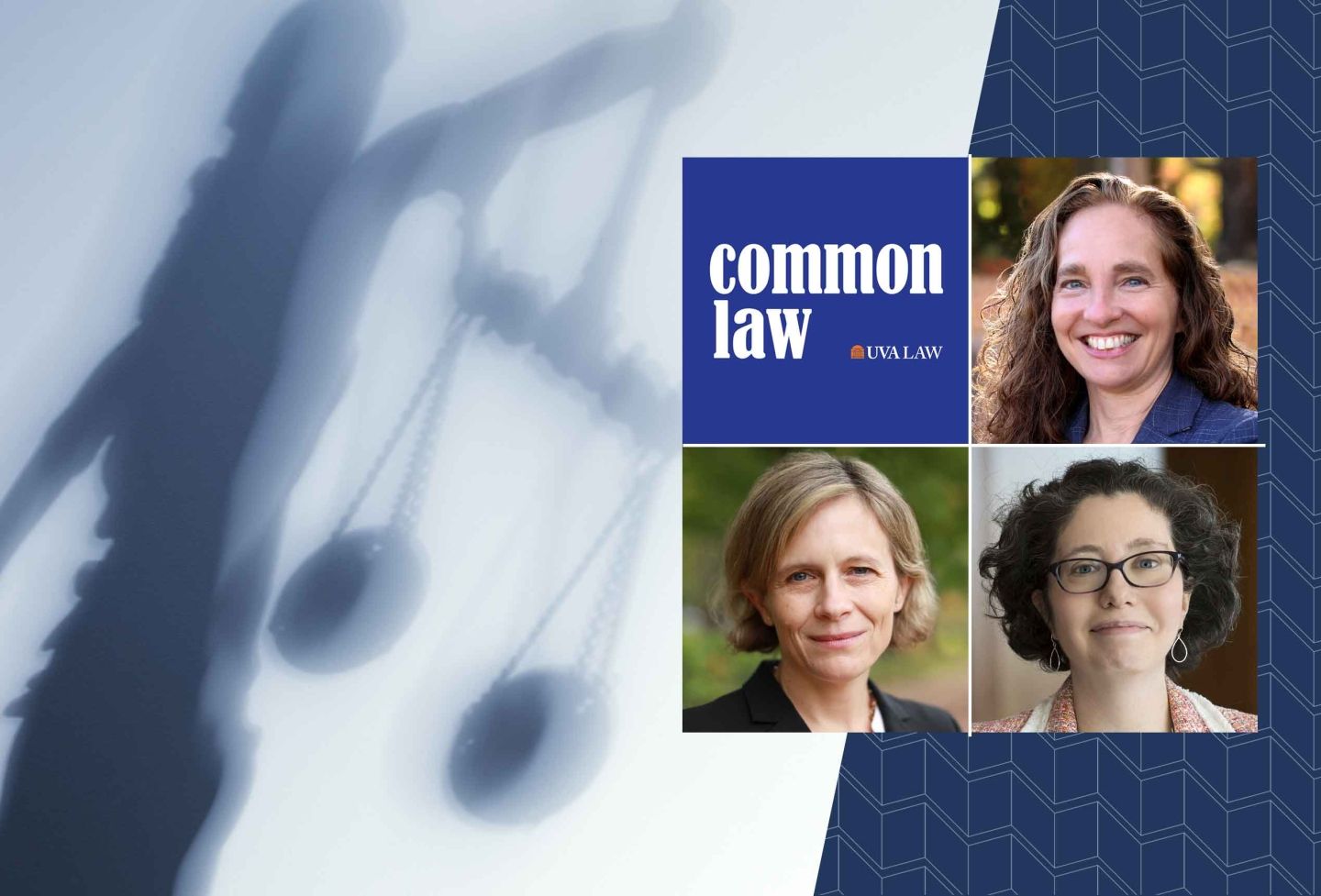A new book by Jessica Lowe, a legal historian and visiting scholar at the University of Virginia School of Law, explores a real-life murder mystery and what the case implies about Americans’ views of justice shortly after the nation’s founding.
“Murder in the Shenandoah: Making Law Sovereign in Revolutionary Virginia,” Lowe’s first book, was published by Cambridge University Press earlier this year. Lowe specializes in 18th- and 19th-century American legal history.
John Crane, the accused in the murder case, was a 24-year-old landowner and son of a deputy sheriff in Berkeley County, Virginia (located in the Shenandoah Valley, in what is West Virginia today). Crane’s property spanned 200 acres, yet it was modest compared to some of his family’s holdings. His wife was from one of Virginia’s oldest and most powerful families.
In studying the case, Lowe said, “We’re looking at the consequences of the American Revolution. What did the revolution mean for law, for people, for class?”
The incident in question, which began with a sprawling brawl at the property line of neighboring landowner Thomas Campbell, and involving workers of both men, took place on July 4, 1791. It was exactly 15 years after the nation’s founding. The day had started out as a celebration, and drinking was involved.
“The grog may have made conflict more likely,” Lowe writes. “By nightfall, the men fought, wrestling each other down to the ground near the fence between Crane’s and Campbell’s fields. As the melee cleared, Abraham Vanhorn [a wagon driver] lay mortally wounded — stabbed, crying, ‘my guts are out!’ Some witnesses claimed John Crane had delivered the fatal blow. Crane insisted on his innocence. Had he done it? And if so, why?”
The U.S. was in a time of legal transition. A legislative proposal by Thomas Jefferson to replace Virginia’s outdated criminal law with a simplified schedule of crimes and punishments had been recently rejected, Lowe said.
“This was a moment when people didn’t actually know what it meant for the law to be sovereign,” she said. “They said that the law was king, but in practice that could have meant different things.”
How jurors handled the Crane case is an example of how seriously they wanted to get justice right. The jurors ultimately believed Crane committed the crime, but they couldn’t come to a decision between murder or the lesser charge of manslaughter. So they rendered a special verdict, which included a recitation of facts, and left the life-or-death legal decision in the hands of the judge.
“The case was a test of the new U.S. commitment to revising colonial laws and making criminal codes more democratic, less punitive and less shaped by the class of the defendant,” Professor Brandon Garrett, a criminal law expert at Duke University and formerly of UVA Law, writes in support of the book for the Boston Review. “Virginia was not only a hotbed for such thinking, but was also the most populous state in the new country. What happened there ramified. And the judge in the case, St. George Tucker, was an eminent law professor [at William & Mary], a thought leader in the ‘political experiment’ of modernizing” American law.
Lowe said her research was full of surprises. The cast of characters in Crane’s case would also include future Chief Justice John Marshall, future U.S. Attorney General Charles Lee, Gen. Daniel Morgan and many others. Lowe didn’t want to give away the ending, but the case challenges common preconceptions about justice and privilege, and the permissibility of violence in the South during the time period. It even involves an insanity defense.
The book evolved from her dissertation at Princeton University, where Lowe earned her M.A. and Ph.D. in American history. In 2014, it won the interdisciplinary St. George Tucker Society’s Bradford Dissertation Prize for best dissertation on any aspect of the American South. Her project began as a more general and wide-ranging review of Virginia criminal law between the Revolution and the Civil War.
“I was interested in writing this sweeping story about the development of American criminal law over a long period of time,” she said. “What I had planned for was the very opposite of what this book became — the story of this single, fascinating case.”
While at Princeton, she also received an Association of Princeton Graduate Alumni Teaching Award, the highest award for graduate instruction.
Lowe earned her J.D. from Harvard Law School, and her bachelor’s degrees in economics and political and social thought from UVA, where she won the Sorensen Prize for best thesis. She also studied at Yale Divinity School, where she was a Marquand Scholar. After law school, she clerked in the District of Connecticut and for the U.S. Court of Appeals for the Fourth Circuit.
Lowe joined the UVA Law faculty as an associate professor in 2012. She is the founder of UVA’s interdisciplinary Legal History Writing Group and helps coordinate the Law School’s Legal History Workshop series. She is currently on leave.
Lowe said the book is the product of extensive research, which included “a lot of on-the-ground detective work,” such as tracing land grants and tax records, as well as interviewing descendants of the parties involved in the case.
Her list of people to thank in supporting the decade-long project includes Dean Risa Goluboff and professors G. Edward White, Cynthia Nicoletti, A. E. Dick Howard ’61, Julia Mahoney and Paul Halliday; librarians Kent Olson, Loren Moulds and Jim Ambuske; her assistant, Delores Clatterbuck; her student research assistants “and many other people who read it, came to workshops and gave me great feedback.”
Founded in 1819, the University of Virginia School of Law is the second-oldest continuously operating law school in the nation. Consistently ranked among the top law schools, Virginia is a world-renowned training ground for distinguished lawyers and public servants, instilling in them a commitment to leadership, integrity and community service.


